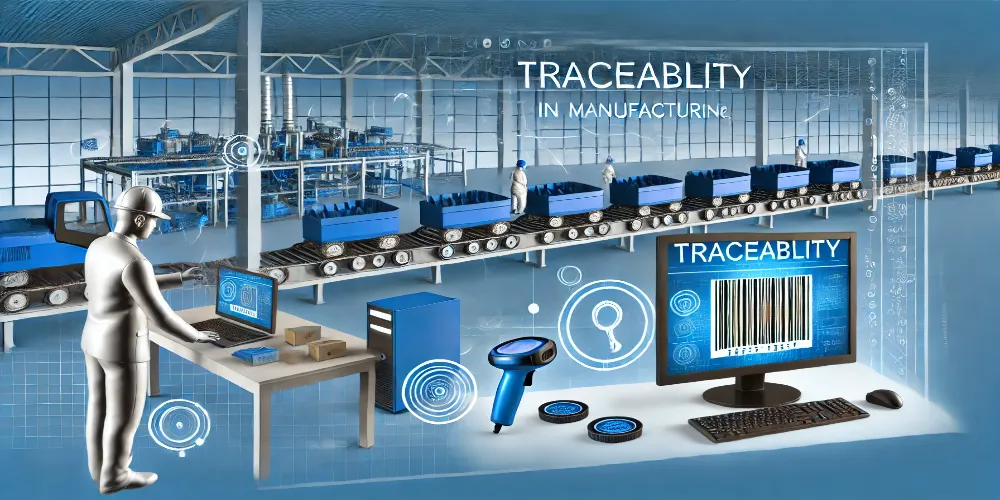Examples Of Lean Manufacturing - Improved Efficiency
Lean manufacturing is a key method used to streamline production. Its overall objective is to maximise value and customer...
By AMREP | Posted on July 12, 2024

Traceability in manufacturing refers to the ability to track and trace every aspect of the production and distribution process, from the procurement of raw materials to the delivery of the finished products to the customers. This capability is increasingly becoming a critical component of manufacturing operations for several reasons, including quality control, regulatory compliance, supply chain management, and consumer safety. In this blog, we'll delve into the importance of traceability in manufacturing, its key components, the technologies enabling it, and the challenges and benefits associated with implementing traceability systems.
Traceability systems are vital for manufacturers in various industries such as food and beverage, automotive, aerospace, pharmaceuticals, and electronics. These systems help manufacturers to:
A comprehensive traceability system in manufacturing involves several key components:
Various technologies support the implementation of traceability systems:
Implementing traceability systems within the manufacturing sector involves navigating a series of challenges, each with its own implications for business operations, budget, and security. However, with the right approach and solutions, these challenges can be effectively managed, enabling organizations to reap the considerable benefits traceability offers. Here's a closer look at the challenges and solutions for implementing traceability systems:
Traceability in manufacturing is no longer a nice-to-have feature but a necessity for ensuring quality, compliance, and customer satisfaction. By utilizing advanced technologies and implementing comprehensive traceability systems, manufacturers can enhance their operations, build trust with consumers, and stay competitive in today's market. As the demand for transparency and accountability continues to grow, the importance of traceability in manufacturing will only increase, making it a critical area of focus for manufacturers around the globe. Here you must-see: How to Improve Quality in Manufacturing?
AMREP plays a substantial role in ensuring that traceability systems are properly implemented through quality enhancement services. One key example is RFID tags and labels - our QC inspectors cross-check these labels to make sure that the right labels are placed on products and that they contain the correct information. This is critical for retailers as they must comply with strict regulatory requirements.
Read More : SA8000 Certification and Traceability Standards
Radio Frequency Identification (RFID).
https://www.fda.gov/radiation-emitting-products/electromagnetic-compatibility-emc/radio-frequency-identification-rfid#:~:text=Radio%20Frequency%20Identification%20(RFID)%20refers,back%20from%20the%20RFID%20tagTraceability Systems.
https://www.iisd.org/ssi/wp-content/uploads/2019/09/Tracebility-systems.pdfContact Us To See What We Can Do
Call Us
Mon - Sat 9.00 - 18.00
Sunday Closed


21 - February 2024
21
February
2024
Lean manufacturing is a key method used to streamline production. Its overall objective is to maximise value and customer...

06 - October 2023
06
October
2023
A manufacturing process audit is a systematic and in-depth examination of manufacturing processes to assess production performance and identify potential or ...

14 - February 2024
14
February
2024
New Product Introduction (NPI) is the process of taking a product from the initial concept stage through to mass production and commercialization ...
